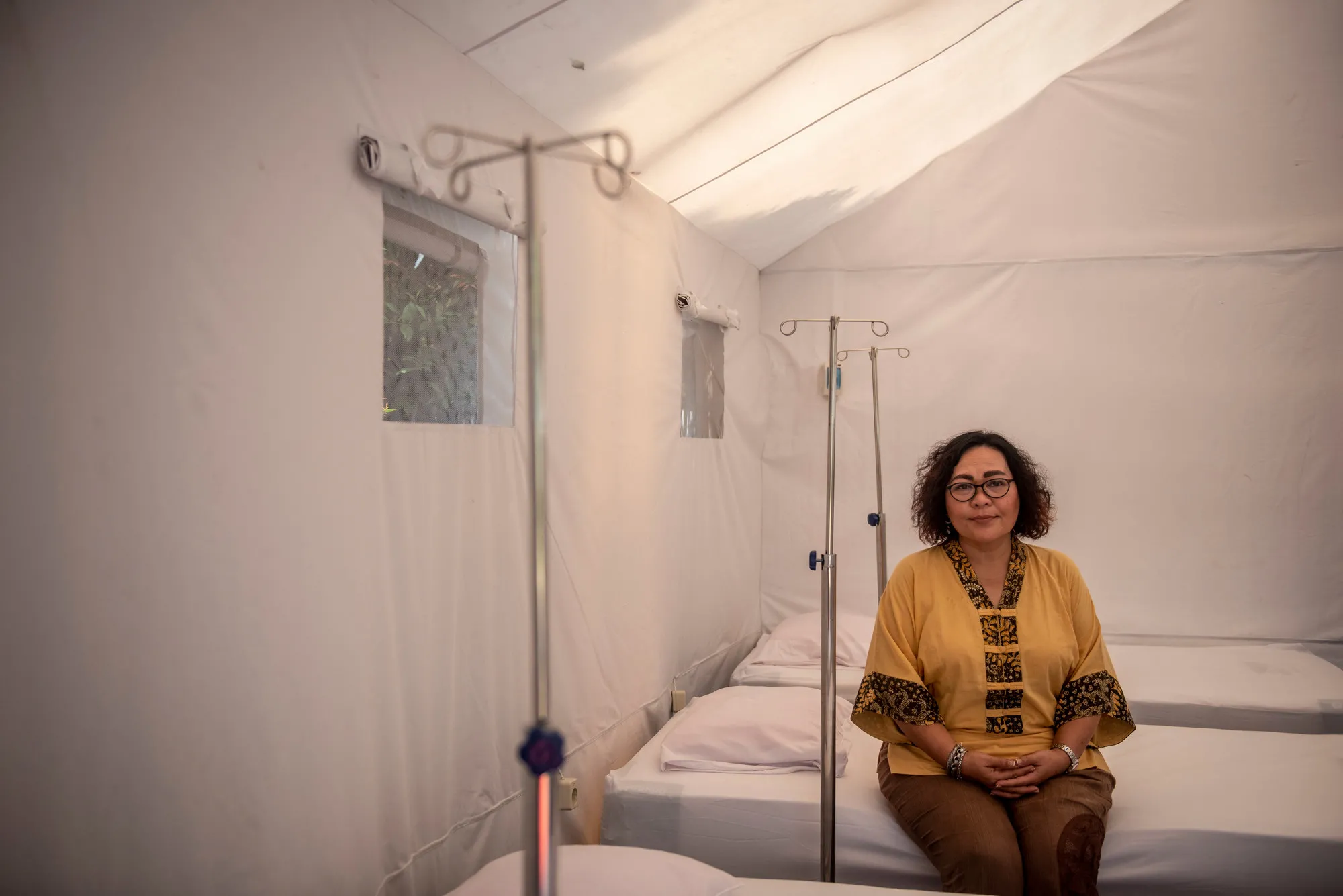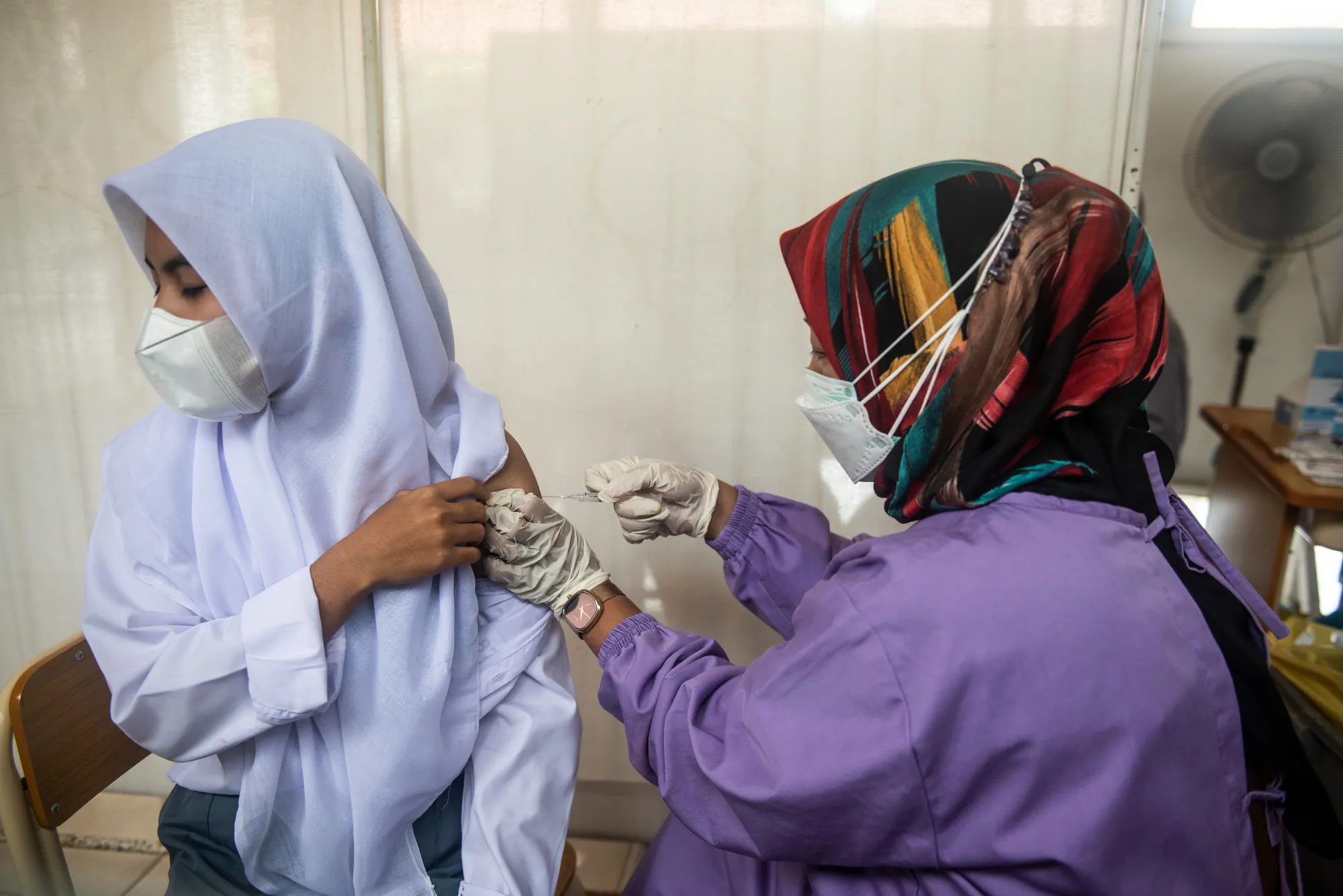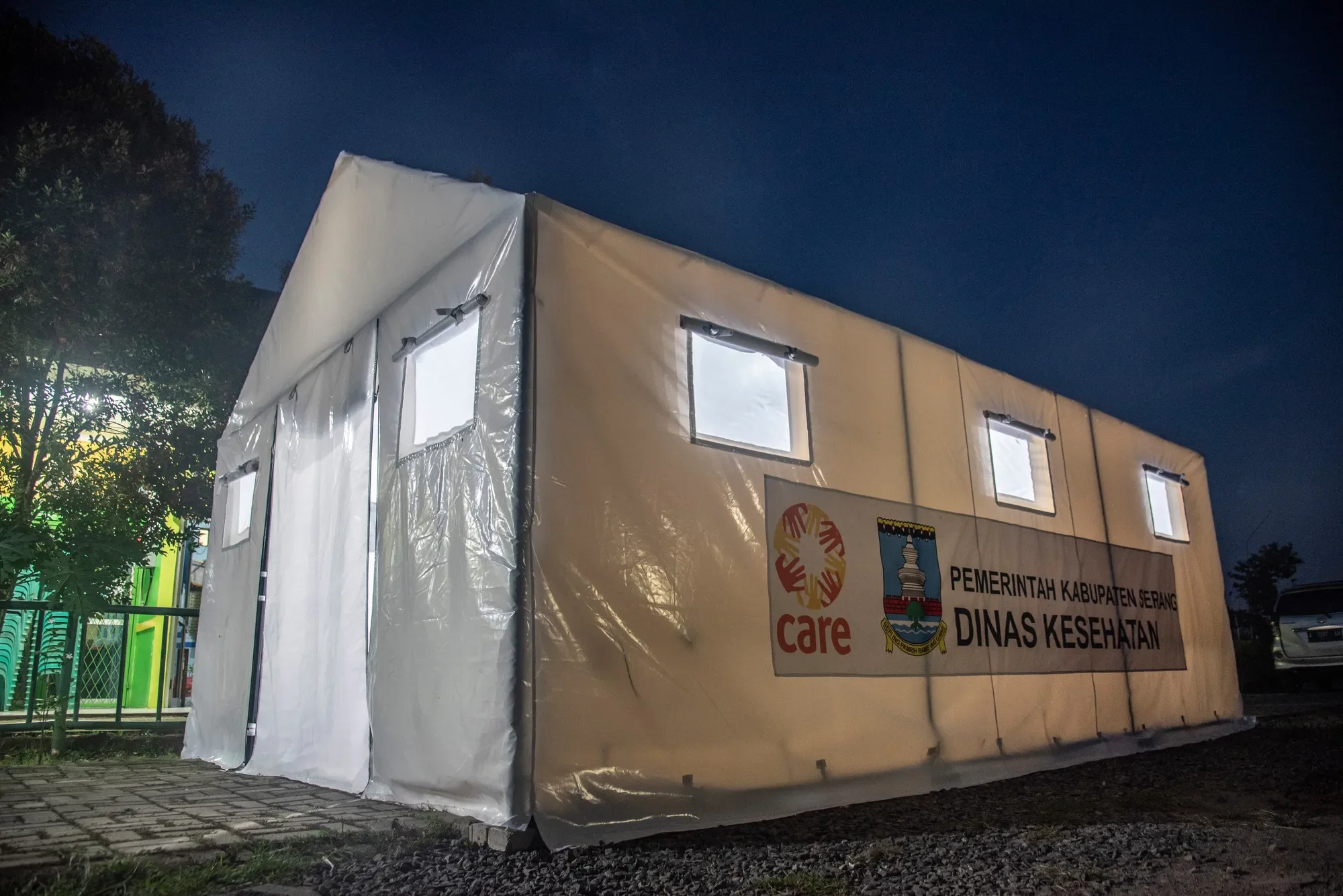Indonesia is currently experiencing a second wave of COVID infections, with cases spiking in Java and Bali in June, followed by spikes in other areas. Bona Siahaan, CEO of Yayasan CARE Peduli (CARE Indonesia) recently shared how the organization has shifted to meet the need.
How has CARE Indonesia responded to the second wave of COVID-19?
Part of our response is to continue what we have been doing since the pandemic began: reducing community risk by providing handwashing facilities with clean water, soap, and masks, while sharing information about avoiding transmission. This has been followed by efforts to mitigate economic impact, particularly for women, many of whom have lost jobs or incomes. We have a program called Cash for Work where we provide working capital intended to generate income.
With this recent spike, we’ve built negative-pressure tents in several locations to accommodate patients who cannot be accepted in hospitals. Some of these tents are set aside for pregnant women with COVID. For those who self-isolate at home, particularly women and children, we also donate packages containing vitamins, food supplements, and masks so they can improve their nutrition and recover quickly.



